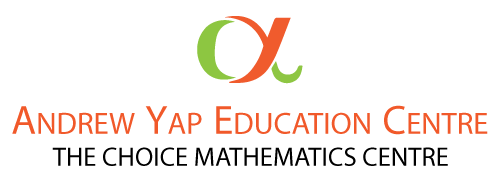Why Group Math Tuition May Be Better Than Self-Study for Secondary Students
Many secondary students believe they can master mathematics through self-study, relying on textbooks, online videos, and practice questions. While independent learning may seem effective, it often leads to gaps in understanding and retention.
Mathematics is a subject that requires clear explanations, consistent practice, and problem-solving techniques. Without proper guidance, students may struggle with complex concepts or develop misconceptions. This is where secondary math tuition provides a more structured and effective learning experience.
In Singapore, students face increasing pressure to excel in mathematics due to the competitive academic environment. Math tuition offers a structured, interactive, and supportive setting where students can receive expert guidance and peer support. In this article, we explore why group tuition may be a better option than studying alone.
The Limitations of Self-Study
Self-study may seem like a flexible and cost-effective option, but it comes with many challenges. Without external guidance and support, students often face the following difficulties:
1. Lack of Structure and Organisation
One of the biggest challenges of self-study is the lack of structure. Without a guided syllabus, students may unintentionally skip key topics or focus too much on less important areas.
While self-study provides flexibility, it also requires strong discipline and time management, which many students struggle with due to distractions like social media and entertainment. As a result, they may not cover the necessary content effectively, leading to gaps in their understanding.
2. Absence of Immediate Feedback
Another drawback of studying alone is the absence of immediate feedback. When students misunderstand a concept, there is no teacher or tutor available to correct them on the spot. This can lead to misconceptions that persist and affect their future learning.
Although textbooks and online resources provide explanations, they cannot offer personalised guidance tailored to a student’s specific difficulties. Without someone to clarify doubts, students may become frustrated and lose confidence in their abilities.
3. Limited Exposure to Different Problem Types
Self-study often limits students to practising only the types of questions they feel comfortable with. They may avoid challenging problems, which prevents them from developing the problem-solving skills needed for examinations.
In reality, exams often include tricky and unfamiliar questions that require students to think critically and apply concepts in new ways. Without exposure to a wide variety of problems, self-study alone may not be enough to prepare students for such challenges.
4. Reduced Motivation and Accountability
Many students struggle with motivation when studying alone. Without a set schedule, they may procrastinate, lose focus, or feel unmotivated to complete their revision.
Additionally, self-study can be isolating and tedious, making it harder for students to stay engaged with their learning. When there is no one to encourage or hold them accountable, students may not put in the effort needed to improve their maths skills consistently.
The Benefits of Group Maths Tuition
Group tuition offers a structured and interactive learning environment that helps students stay on track and improve their understanding. Here’s why it may be a better option than self-study:
1. A Structured Learning Approach
One of the biggest advantages of group tuition is that it follows a well-organised curriculum. Lessons are carefully structured to ensure that students fully grasp each concept before moving on to the next topic.
Tutors guide students through a systematic learning process, making sure that they do not overlook any important areas. Regular assessments and tests also help students track their progress, identify weaknesses, and work on areas that need improvement.
2. Interactive and Engaging Learning Environment
Unlike self-study, group tuition creates an interactive learning environment where students can actively participate. Tutors encourage discussions, problem-solving exercises, and interactive activities that make lessons more engaging.
Group settings allow students to learn from each other by observing different problem-solving approaches. This exposure to multiple perspectives helps deepen their understanding of concepts and improves their analytical thinking skills.
3. Immediate Expert Guidance and Support
With group tuition, students benefit from immediate expert guidance. Tutors are available to provide step-by-step explanations, ensuring that students fully understand the reasoning behind each solution. If students have any doubts, they can ask questions and receive clear, personalised answers on the spot.
Difficult topics are also broken down into smaller, manageable parts, making them easier to understand and apply. This instant feedback prevents misconceptions from forming and helps students build a strong foundation in mathematics.
4. Peer Learning and Motivation
Studying in a group setting offers a motivational boost that self-study often lacks. When students learn alongside their peers, they develop a sense of teamwork and motivation to keep up with the group’s progress. Seeing classmates work hard encourages them to stay committed to their studies.
Additionally, explaining concepts to others reinforces a student’s own understanding, a phenomenon known as “The Protégé Effect.” By engaging with their peers, students gain confidence in their knowledge and improve their communication skills.
5. Better Exam Preparation and Performance
Group tuition prepares students more effectively for exams. Since tutors expose students to a variety of question types, they become familiar with the kinds of problems that commonly appear in assessments.
Tutors also teach essential exam techniques, such as time management and question analysis, which help students approach their exams with confidence. Mock tests conducted in group tuition classes simulate real exam conditions, allowing students to practise under timed settings and refine their problem-solving strategies. This structured approach significantly improves their performance in actual exams.
Andrew Yap Education Centre – Leading Math Tuition in Singapore
At Andrew Yap Education Centre, we believe that students learn best in a structured and engaging environment. Our secondary math tuition programmes are designed to provide expert guidance, interactive learning, and a clear, systematic approach to mastering mathematics.
With experienced educators, we ensure that every student develops confidence and mastery in mathematics. Our students benefit from step-by-step guidance, interactive discussions, and effective exam preparation strategies, giving them the tools they need to excel.
For students in Singapore looking for math tuition that provides structure, support, and expert coaching, Andrew Yap Education Centre is here to help. Contact us today to begin.


